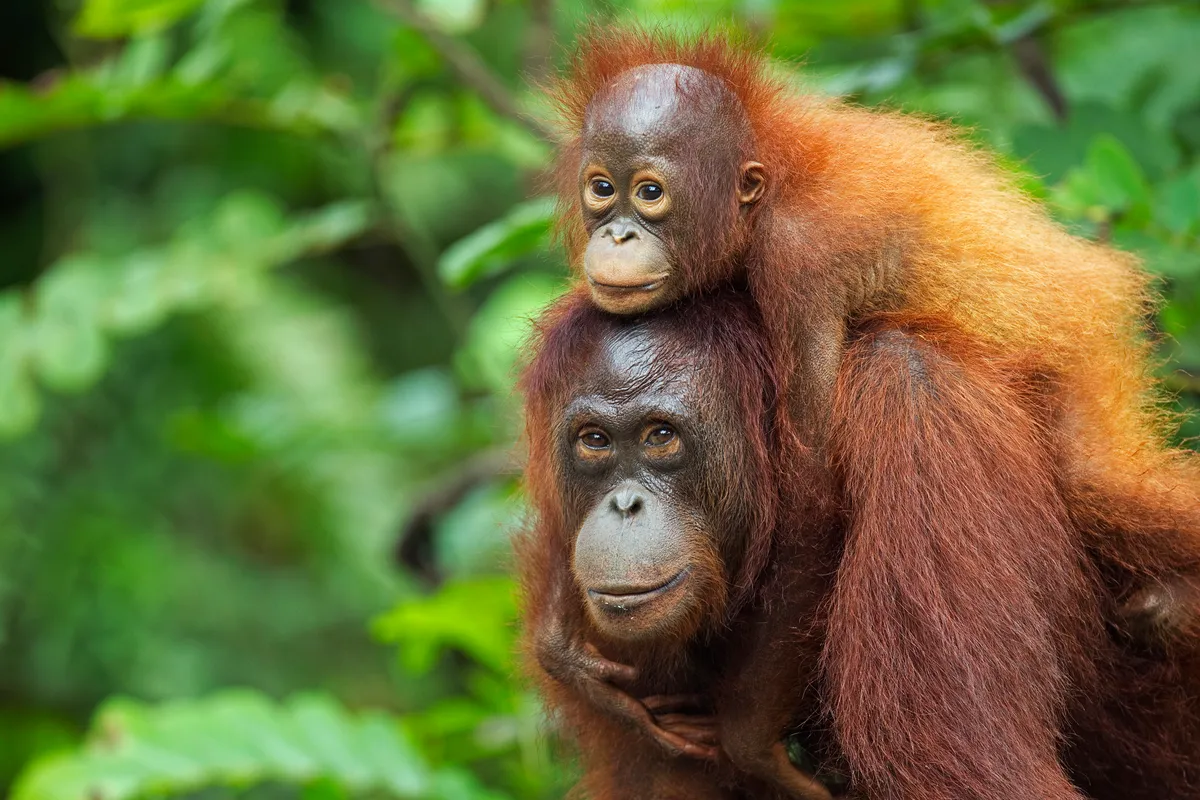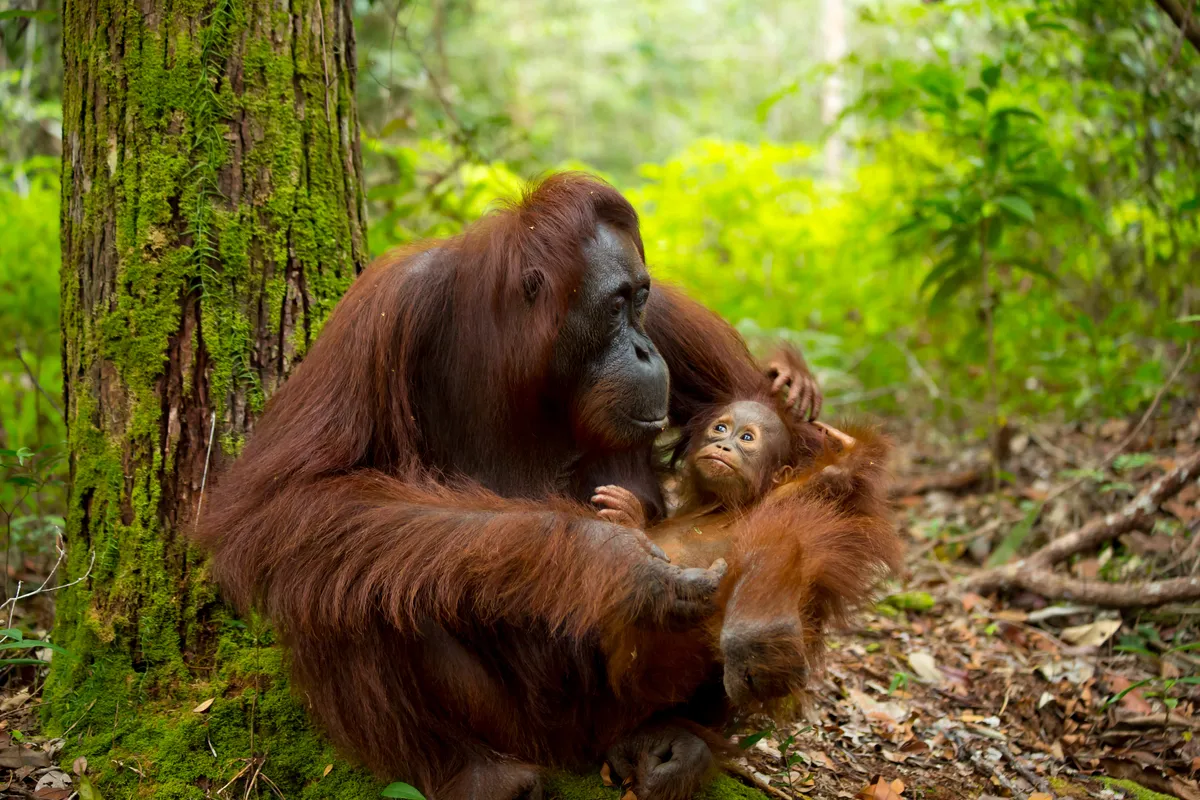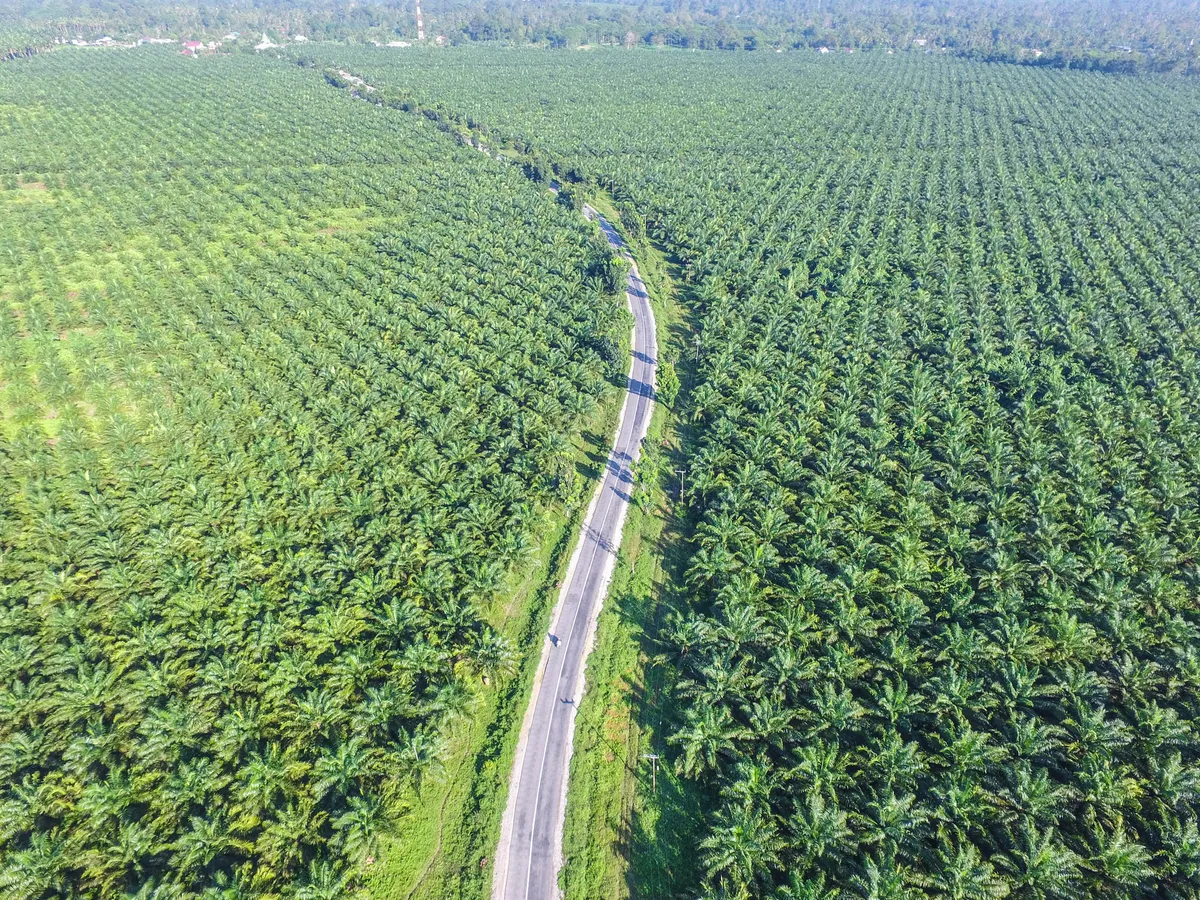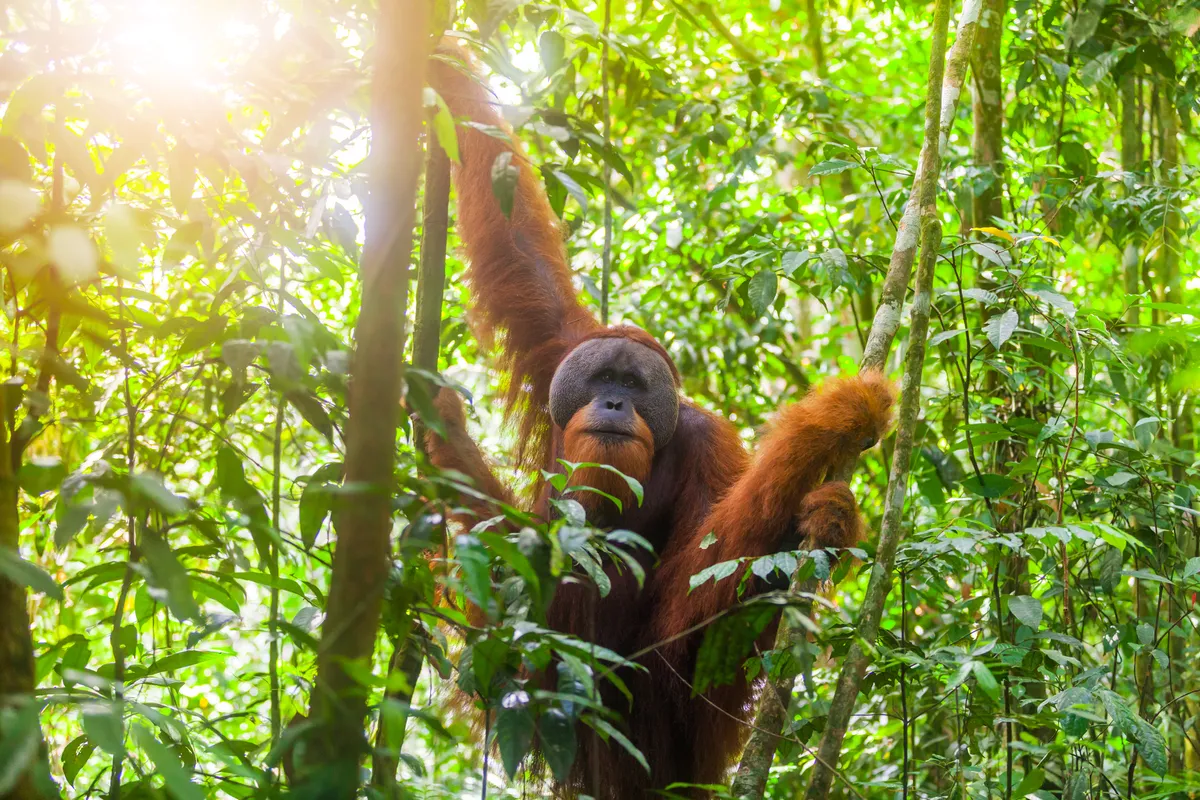We ask the author, poet and former Children's Laureate Michael Morpurgo why he cares so much about orangutans.
Why are orangutans special?
Because they’re so threatened. I’m aware of how few orangutans there are and how their environment has been decimated. The treatment they’ve received is appalling – in terms of their mothers being killed and the young being trapped and sold.
Because I love them so much I’ve written two books in which they’ve played a part. One is Kensuke’s Kingdom (1999), the story of a boy that meets a soldier who is the companion of orangutans and the other is Running Wild (2009), which is about a child that finds himself in the jungle.

When did you first see one?
As research for both books, I went to Jersey Zoo, which has an orangutan breeding programme. The keeper very kindly took the time to tell me about these great apes – how they move, interact together and what you mustn’t do when you’re with them.
I found the experience extraordinary. The creatures I observed had enormous sensitivity and appeared to think about each movement before they made it. I observed strong family bonds, comical clowns and competent climbers. The looseness of their limbs is something that I love, as well as the colour of their hair.
Do orangutans live in groups?
Orangutans are semi-solitary in the wild (unlike other higher primates). Once they reach maturity, they spend most of their time alone, or, in the case of females, with their immature offspring. Adult males old enough to have cheekpads are the most solitary, spending over 90 per cent of their time alone.
What did you discover?
Orangutans sleep up in the trees and make these beds, every night, without harming the forest at all. They seem to live in harmony with their surroundings, as a good gardener does. A good gardener does not extract land from the plants and it seems to me that orangutans have this same kind of awareness, so maybe that’s why they are called ‘gardeners of the forest’.

How can we help orangutans?
There are orphanages in Indonesia that rescue baby orangutans. Conservationists also educate local communities on these incredible primates. Children who’ve grown up with their uncles and dads shooting these creatures need to know why these wonderful animals are more valuable when allowed to live freely in their natural environment. We’ve also got to stop the monsters who are planting palm oil trees and reduce our consumption of conflict-palm oil.

What role can children play?
We need to show young people the connection between food and wildlife. When kids come to our Farms for City Children project in Devon they go home thinking much harder about where food comes from and realise that this world belongs to animals as well.
For example, they may choose not to eat peanut butter later in their lives because they’ve discovered it contains palm oil from plantations that have replaced the rainforest habitat of orangutans.

We should also be encouraging children to understand wildlife beyond the animals they see singing and dancing in films and on TV. If that’s all children are shown, they could be inclined to think wildlife is there just for entertainment. We have a role as stewards of this planet to care for these creatures and not simply to laugh at them.
The expert view
"Orangutans are the largest arboreal animal, spending most of their life in the forest canopy of Borneo and Sumatra. They are frugivores, and by swallowing seeds act as important seed dispersal agents, or 'gardeners of the forest'. Expansion of industrial agriculture – especially for palm oil and paper pulp – has dramatically reduced orangutan habitat, and we consumers have unwittingly paid for it through our purchases of these products."
Ian Redmond is a trustee of the Orangutan Foundation
Michael Morpurgo is a children's author and runs the Farms for City Children project